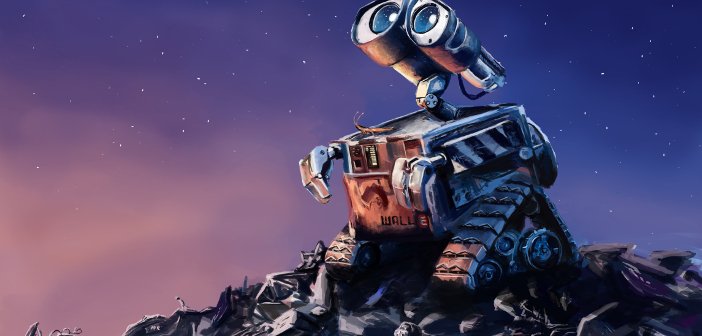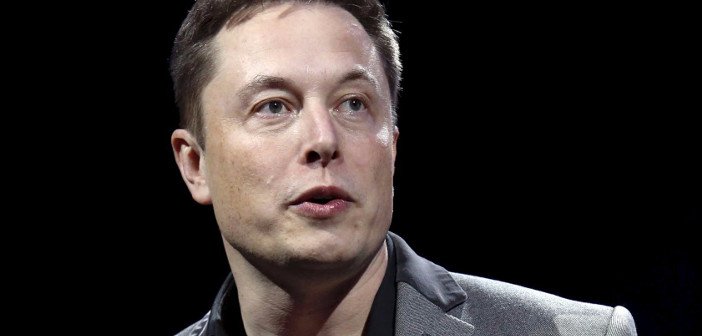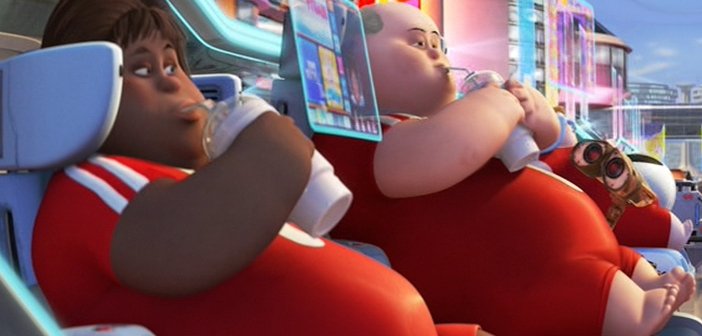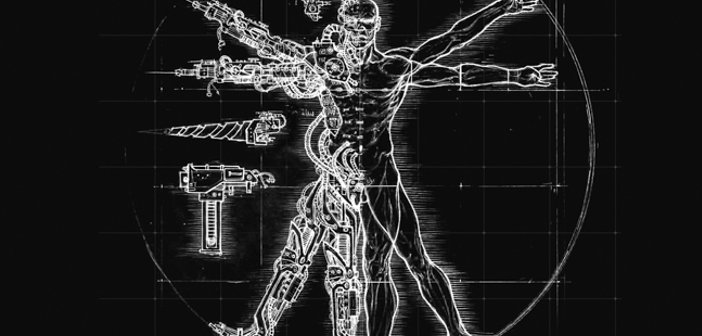What do Advancements in AI and Robotics Mean for the Future of our Workforces?
Do you remember that quite popular film a few years back that gave us a dystopian view of a desolate world? A world where humanity is at the brink of self-destruction, where vital resources are finite, and the landscape is borderline uninhabitable? No, I’m not talking about apocalyptic horrors like I Am Legend or 28 Days Later but rather, the supposedly jolly family feature/semi-silent comedy, Wall-E. For animated Pixar fare, it’s immensely bleak, and even cynical. Set in a distant future on an Earth long abandoned by those who abused it, Wall–E stars an eponymous, sentient trash compactor who has the thankless task of cleaning up an impossibly polluted plant all on his lonesome.
The film’s depiction of humanity itself is perhaps equally sardonic. When our plucky, robotic hero does eventually reach some members of the species who created him—on a corporate-run intergalactic cruise ship, no less—he finds them in an almost vegetated state. The lives of these humans are completely and utterly governed by their robot overloads to the point where a widespread existential crisis feels just around the corner. With every aspect of their existence assisted by automation, the humans have become obese, gelatinous husks who find movement difficult. Bound permanently to ultra-sleek, lounge chairs that do their walking for them, they are fed, taught and presumably toilet trained by modern machinery. All sports are played virtually and all social interaction takes place via floating screens. While there is a captain at the helm, it’s a feminine HAL-like AI that’s really running things.

Wall-E takes place almost 1,500 years in the future. While the film certainly captures many of our fears and anxieties concerning a technologically dominated society, it also reinforces an idea that pop culture often espouses with regards to a fully automated world: it is a reality that we are very, very far from achieving. The truth is, we may be a hell of a lot closer than many of us might realise. With robotics tech and AI research advancing at an increasingly rapid rate, their roles in our societies are only set to grow. [pullquote]Wall-E also reinforces an idea that pop culture often espouses with regards to a fully automated world: it is a reality that we are very, very far from achieving. The truth is, we may be a hell of a lot closer than many of us might realise.[/pullquote]
Earlier this year, we saw Google’s AlphaGo AI defeat one of the foremost Human Go players in the world (4-1 in the series, it wasn’t even close). A feat which happened earlier than many thought possible, and a crucial one considering the complex Asian board game has been a bit of a great white whale in the minds of AI researchers for decades. Self- driving cars are also no longer a pipe dream concocted by science fiction but rather a fully realised concept. Just last month , a convoy of self-driving trucks quietly made the first cross border trip across Europe, and by 2020 it is estimated that there will be 10 million such vehicles on our roads. Every second week, it feels like there’s another video released by another university displaying the capabilities of their impressive machinery projects, whether it be a heavy load bearing robot or one that runs like a cheetah.
As we seem to edge ever closer to a world that is completely automated, inevitable questions arise about what this will mean for the future of the labour forces in areas that are to be affected in the most immediate future. And it won’t be just be low skilled, blue collar jobs either. Many experts believe that by around 2025, AI and robotics will be present in most people’s daily lives, which in turn will mean huge ramifications for a whole host of industries including healthcare, transport, logistics, and customer service. It doesn’t take the mind of Elon Musk to realise the potential problems that could emerge in ensuing decades, with the possibility of robotics replacing many less qualified jobs in these fields. Employees can’t be expected to compete with something that doesn’t need breaks, doesn’t sleep, doesn’t need to be paid, and is endlessly productive.

This fear of widespread technological unemployment is not, by any means, a new phenomenon. For countless generations we’ve been told this foreboding prediction. The belief that new technology will only end up destroying more jobs than it creates is one that mainstream economists often see as irrational. It’s been so prevalent that there is even a term for it, the Luddite fallacy, named after the ever relevant punchline that was the industrial counter-revolutionaries. Historically speaking, those economists have been consistently proven right as jobs didn’t disappear, they just changed their composition. The industrial revolution saw thousands of people gaining employment in new factories, and the tech boom mostly led to jobs being assisted by computers as opposed to being replaced by them. [pullquote]Employees can’t be expected to compete with something that doesn’t need breaks, to sleep, to be paid, and is endlessly productive.[/pullquote]
The incoming generation of technological advancement, however, feels like an exceptional one. It’s a possible watershed moment for that simple fact that the scale in question could be on a very different level. In 2014, the Pew Research Centre carried out a comprehensive survey with almost 1900 relevant experts and asked them if they thought networked, automated, artificial intelligence (AI) applications and robotic devices would displace more jobs than they create by 2025. The results were worryingly inconclusive.
Of those asked, 52 per cent remained positive, stating that although they were sure many human performed professions will be taken over by robots or digital agents that, by the year in question, mankind’s ingenuity will nonetheless continue to think of whole new industries and job types to make up for it. The remaining 48% felt that not only would more jobs be displaced than created, but the forthcoming years would see a whole new era of income equality ushered in.

That’s a near 50/50 split. Numbers that polarising should be cause for concern. In the past, the cynical naysayers often found themselves in the minority, but now it’s much more contentious. If there’s this kind of uncertainty amongst the people who should know the most, what hope is there for the rest of us? The optimists’ points of view obviously shouldn’t be disregarded. A common line we hear these days is that many of the jobs our grandchildren will be performing have yet to be invented, as new technology creates new industries. Surveyed professor Ben Schniderman makes the point that this has already been happening:
Journalists lost their jobs because of changes to advertising and store salespeople are losing jobs to Internet sales people. At the same time someone is building new websites, managing corporate social media plans, creating new products, etc. Improved user interfaces, novel services, and fresh ideas will create more jobs.
Another argument is that we are moving slower sociologically then we are technologically. Even if the technology is there, society itself isn’t ready just yet. But knowing capitalist enterprise and the possibility of sudden shifts in the economic landscape, we should be aware that these things can turn on a dime. With another crisis comes the need to cut costs which could force the hands of many corporations.
There is no doubt in my mind that many, many new and unimaginable professions will emerge in the forthcoming decades. Whether there will be enough, is again, entirely up for debate. The threat of overpopulation has been a hot topic for years, but one of the least reported aspects with regards to an unwelcomed increase in people is that that would also mean an unwelcomed increase in the need for work.

[pullquote]The remaining 48% felt that not only would more jobs be displaced than created, but the forthcoming years would see a whole new era of income equality ushered in.[/pullquote]
The issue is not just necessarily about how many jobs will be created, but what the nature of these jobs will be. Large swaths of the blue collar and white collar workforces could potentially be wiped out. Realistically, the new tech-driven job types may not be a viable option for many of those who will be displaced by automation. It’s hard to imagine that someone whose job consists of manual labour or driving will suddenly be able to make a massive career leap into an industry they have little experience in. A worrying thought is that many people currently studying for a degree could find themselves obsolete not long after they graduate. And as an English/History graduate, I can sympathise.
To put it simply, the jobs that are going to be created, regardless of the amount, aren’t going to make up for the jobs that are lost. In theory this could result in the formation of a permanently unemployable underclass. Having a large proportion of a population left in jobless limbo would be a disastrous economic side-effect, and one that’s more plausible than we might want to admit. Justin Reich, a fellow of Harvard University’s Berkman Centre for Internet & Society, stated that with automation,
(…) There will be some new opportunities created for complex non-routine work, but the gains at this top of the labour market will not be offset by losses in the middle and gains of terrible jobs at the bottom. I’m not sure that jobs will disappear altogether, though that seems possible, but the jobs that are left will be lower paying and less secure than those that exists now. The middle is moving to the bottom.

[pullquote]Having a large proportion of a population left in jobless limbo would be a disastrous economic side-effect, and one that’s more plausible than we might want to admit.[/pullquote]
Whatever side of the debate people are on, there is one aspect in which there is clear consensus: we are not adequately prepared for the seismic shift in labour makeup that is soon to befall us. Our current social structures and educational institutions are simply not preparing people for the tech-dominated society that they will soon be working in. If our schools are like factory lines, then we will produce people only equipped to work at factory lines. With such divergent opinions, it’s not at all easy to predict how this is all going to play out. One thing that is for certain though, is that the dialogue needs to be all inclusive and carried out in the public sphere. Quite predictably, the people we should be listening to are the people with the least public sway, while the policy makers and media outlets seem willfully ignorant.
Historical legacy is funny thing. These days, the Luddites are a name synonymous with technophobia and a reluctance to accept progressive change, but their ire was understandable even if their methods were not. Almost overnight, the livelihoods of these artisans became threatened and their value questioned. People working today in vulnerable jobs may go through something similar, with society telling them their work is valued, only to have the rug pulled out from under them not long after. In trying to make our lives easier through automation, we can’t ignore the fact that we might be making the lives of some people much, much harder.
